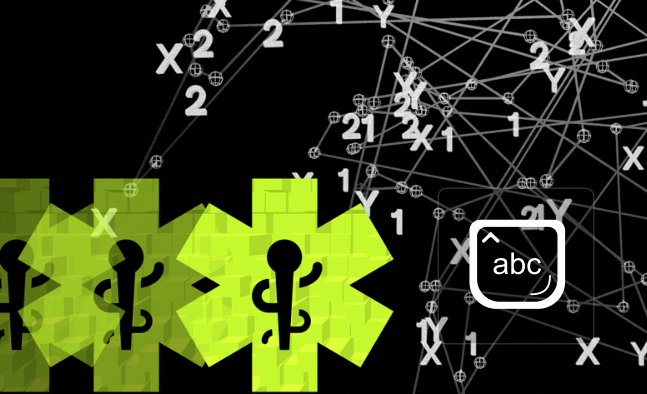the health strategist . institute
institute for
strategic health transformation
& digital health
Joaquim Cardoso MSc.
Chief Research Officer (CRO); Chief Editor; and
Independent Senior Advisor (Chief Strategy Officer — CSO)
September 5, 2023
What is the message?
AI (Artificial Intelligence) will have the most significant impact in the healthcare industry compared to any other industry.
The arguments are the following:
1.Traditional Enterprise Software Struggles in Healthcare:
Traditional enterprise software has faced challenges in penetrating the healthcare sector, as evidenced by discussions about fax machines in healthcare.
The healthcare industry has been slow to adopt technology.
2.Leapfrogging to AI:
The authors suggest that healthcare will skip traditional vertical software adoption and leap straight to AI technology.
AI can act like a human, making it easier for healthcare professionals to use and potentially improving efficiency.
3.AI Solves Access and Cost Issues:
AI will address two significant challenges in healthcare: access and cost.
- AI will provide faster and more widespread access to medical care, reducing wait times and improving diagnoses.
- Additionally, AI will reduce costs by shifting from human services to AI-augmented services.
4.Clinical Applications:
AI is already showing promise in clinical applications, such as diagnosing medical issues and recommending treatment plans.
AI will become an essential tool for healthcare professionals.
5.Excitement and Potential:
There is excitement about the potential of AI in healthcare and it will have a positive impact on people worldwide by improving access to quality medical care and reducing medical debt.

Healthcare as the Next Frontier:
Healthcare is the last major industry that technology has yet to significantly transform and that AI represents the next frontier for innovation in this sector.
The authors challenge skeptics to find another industry where AI can simultaneously address the two most significant challenges in the industry and save lives.
Overall, the message emphasizes the transformative potential of AI in healthcare, suggesting that it will revolutionize the industry by improving access, reducing costs, and advancing clinical care.
DEEP DIVE

Where Will AI Have the Biggest Impact? Healthcare.
Andreessen Horowitz
Daisy Wolf and Vijay Pande
August 2, 2023
Recently, we received an email about a healthcare panel entitled “Using AI with Modern Fax Capabilities to Reduce Administrative Burden.”
But yes, we had read it correctly: There was a panel on integrating AI with fax machines in healthcare!
Are we stuck in the 1980s? Shouldn’t healthcare just get with the times and stop using fax machines?
We had to laugh.
But under the surface, this email tells us a lot.
It reveals why AI will have a bigger impact in healthcare than in any other industry and why AI talent should be incredibly excited by that opportunity.
Hear us out.
It’s no secret that traditional enterprise software has struggled to penetrate healthcare. Emails about “modern fax capabilities” demonstrate this pretty clearly. Healthcare is 20% of the American economy, but only one of the largest 100 public software companies is a healthcare company.
The successful healthcare software companies are incredible businesses, but they are few and far between. Healthcare as an industry has been slow to adopt technology, reluctant to burden overwhelmed IT teams, and train burned-out staff on new systems.
But that is about to change.
Just as emerging markets went straight from using cash to mobile payments (“leapfrogging” credit cards altogether), healthcare is going to move straight from fax machines to AI (“ leapfrogging “ traditional vertical software).
With AI, healthtech companies no longer need to fight the uphill battle of training people on software. Instead, they can sell AI that acts like a person and takes more and more of the work off healthcare professionals’ plates, enabling them to work on more interesting problems and practice at the top of their licenses.
The pitch is simple: “Don’t want more software? Cool, we can give you AI ‘people’ who are cheap, fast, cheerful and empathic.”
We believe that any new technology has to be 10 times better to successfully displace the last one-marginal improvements aren’t worth the effort. Enterprise software struggled to clear that 10x bar in healthcare; AI clears it easily.

This revolution will start with the non-clinical use cases.
AI will take on the work of call centers, scheduling, prior authorization, medical coding, revenue cycle management, and fighting medical bills.
But the clinical revolution is not far behind.
AI can already pass the medical licensing exam to become a doctor and read an x-ray as well as a radiologist.
Soon, AI’s accuracy in diagnosing medical issues and recommending treatment plans will surpass humans.
Every doctor will have an AI copilot assisting them. Regulatory pathways already exist to bring clinical AI to market, and we’re encouraged by early signals of partnership by lawmakers and regulators.
And this is incredibly exciting for every person on the planet.

The biggest challenges in healthcare are
- (1) access-there aren’t enough enough good doctors to provide timely care to all who need it (and clinicians are leaving the field in droves due to burn out), and
- (2) cost-the cost of healthcare has skyrocketed, largely because of increasing labor costs.
AI will solve both of these issues.
When it comes to access, people won’t have to wait months to get quality care.
As AI improves, every single person will have a world-class AI doctor in their pocket, spanning all medical specialities.
Diagnoses will come months earlier, allowing expedited, AI-guided interventions by doctors who focus their time in more impactful ways.
When it comes to cost, AI will radically decrease spend by shifting care from all-human services to AI-augmented services.
Note this is not true in industries that are already software driven-AI is more expensive than enterprise SaaS.
But it’s way less expensive than human services, and healthcare is a $4 trillion industry that is mainly human services.
AI will help us achieve a future where every person can afford world-class medical care, and medical debt is no longer the number one cause of bankruptcy.

Over the past few decades, almost every major industry has been majorly upleveled by technology.
Healthcare is the biggest prize that remains. We know the AI hype cycle has hit healthcare before, but we’re excited by today’s overlap of data availability, public foundation models, and widespread interest.
And as we’ve said before, most impactful companies are built at the frontier, and healthcare is the next frontier.
So to any skeptics doubting that AI will have the biggest impact in healthcare, here’s what we have to say:
Find us another industry where AI can solve the industry’s two biggest challenges and save countless lives along the way. We’ll wait.
In the meantime, we’ll be investing in the future so we can tell our grandchildren stories about the panels on fax machines back in our day.
Originally published at https://a16z.com on August 2, 2023.












